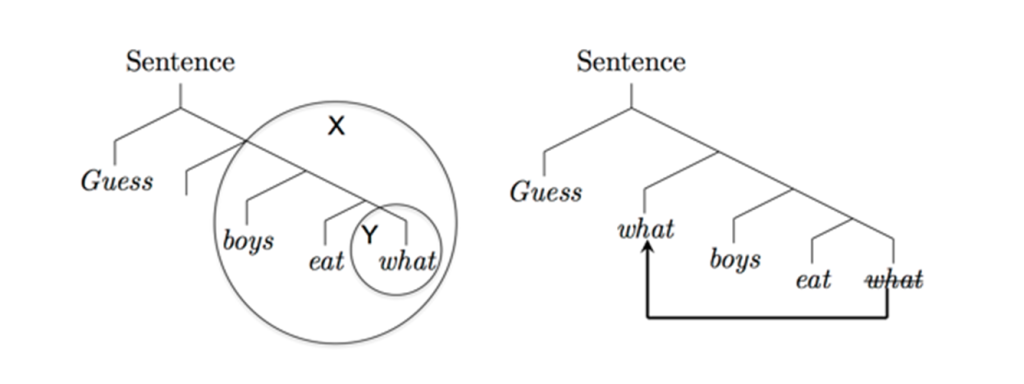
- Well?
- What would you like to talk about?
- Tell me about your tramps, the people you used to see wandering around Beverly Hills and environs. The city continues to be in lockdown. What's happening with them?
- They aren't mine. And they are mostly still around. They can't pass the time inside at the cafes, they can sit outside at some, but they don't seem to want to. I see them in transit from one place to another.
- Where are they going?
- The supermarkets are open, some stores, the Century City shopping center is open. I came across Pablo there this morning, in fact.
- And who is Pablo?
- I'll get to him. I was sitting at the market's little outdoor dining quadrant, thinking of lesser evil presidential voting and a possible way out of it.
- We've already been through it.* We said that to use bad means to a good end was to take a step towards totalitarianism. We said that a worse immediate outcome might, waking people up to action, quicken the arrival of a better outcome. Our present acceptance of a unreasonable, useless partial lockdown without testing and isolation is an example of lesser evil choice, growing I think out of fear of taking necessary risk.
- I was thinking of something simpler. A question: what if one of the candidates isn't evil, but crazy? Which is worse, crazy or evil? Evil is consistently acting on bad principle. Crazy is acting repetitively in response to an image of an unchanging world of your own making.
- I think both candidates are evil, and both crazy, but not much crazy.
- No crazier than the majority of Americans, a very crazy people.
- Yes.
- So we get nowhere with this argument. Or rather, we get back to the people living on the street in and around Beverly Hills. At least one of them, Pablo, is not living on the street, but at the Beverly Hills Marriot, a $300 a night hotel, that is, used to be one before the lockdown. Now it is called, with some humor, the Homeless Hotel, according to a March L.A. Times article I remember reading that left the hotel unnamed to prevent an invasion of hoping to be guests. I also read a Yelp review from a poor unfortunate paying full-rate astonished by the caliber of guests the hotel was now catering to. Apparently this was the last visit from that breed of guest, for the city of L.A. soon had successfully turned the place into a sort of prison, with curfew and lockout if you've failed to check in before 6pm. I met the aforementioned Pablo, as said, outside Gelson's Market in Century City. He'd got into the Marriot through his social worker, an absolute must, in case I was interested; he was eligible because he'd long been on government rolls as officially crazy.
- You're not? Sorry. How is he crazy?
- The way our president is crazy, an unquestionable egomaniac who has no subject but himself. We call that kind of behavior bad character,** not insanity.
- You're right. So with crazy or evil we haven't evaded the problem of lesser evil voting, but tell me more about craziness. Tell me why I should believe you when you claim you are not crazy.
- You know how my favorite character study, Noam Chomsky, whom I guess you're getting tired of hearing about, first made his reputation in linguistics? He came up with a very strong argument that the rules languages follow can't be learned by experience: the rules seem to originate in thought rather than communication (the use of compression makes communication more difficult), they are extremely complex, some remain unknown, their application involves cycling recursion, and they are not to be found attending to the sentences themselves. His detailed argument is something great, an immense achievement.
- You admire it.
- Certainly. I don't admire how he explains what he's observed as embedded in the operation of a language organ.
- Rooted in an organ, speaking metaphorically, or as actually rooted physically in the brain?
- The latter.
- And you think that is a mistake?
- Yes. Better to turn away from material explanation altogether.***
- And what does that get you?
- An explanation for why my impracticality, my improvidence, isn't crazy.
- I'm waiting.
- If you are visible to yourself when you are doing things, your attention is on yourself in process of change, not on the world. And when you get yourself to a place where there is beauty and love and truth, your attention is on the world, you are invisible to your self. In both action and rest, therefore, you can't and don't have a fixed vision of yourself.
- You can't be an egomaniacal American.
- No you can't. And as a result you'll have no fear of death.
- You'll take what appear to be unreasonable risks. I'm to understand that is why your carelessness is not really crazy? Your behavior is not self attending?
- That's for others to judge.
- I'll let you know when the conversation is over.
- We're almost done. Chomsky's language producing self that performs the complex cycling conversion from internal to external language is an organ, a material structure somewhere in the brain.
- While the self you see, or rather don't see, is either in change or unattended to at rest. And that makes the self invisible, unavailable to glorification in egomania.
- Your judgment now? Crazy or not crazy?
- I'll know for sure if some day I find you locked in at the Marriot.
Further Reading:
Noam Chomsky & Mental Things
Selfless
________________
* Totalitarianism & The Lesser Evil
** 'Treachery, disloyalty, cruelty, tyranny....are our ordinary vices.' (Montaigne, 'Of Cannibals')
*** Language & Leaders